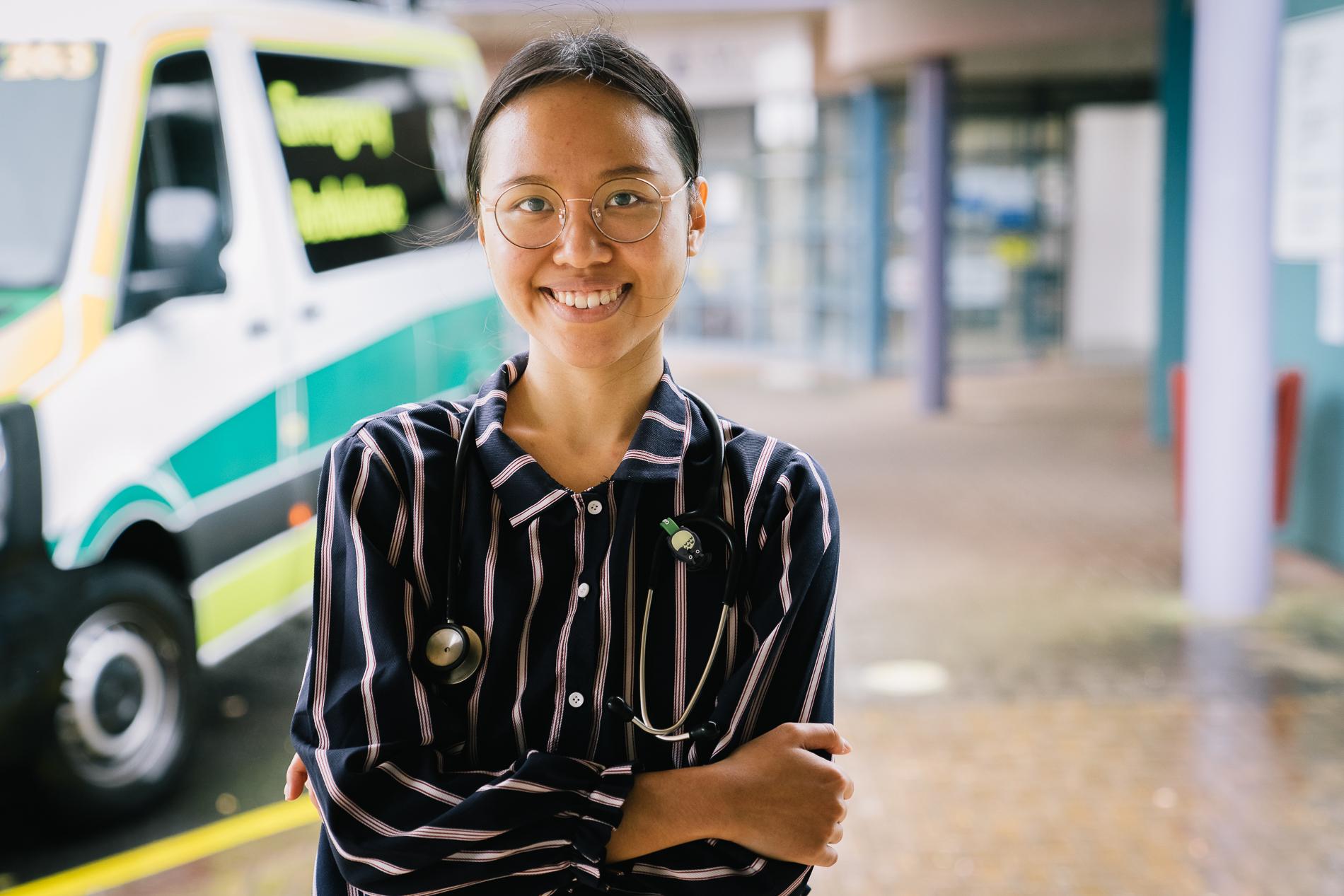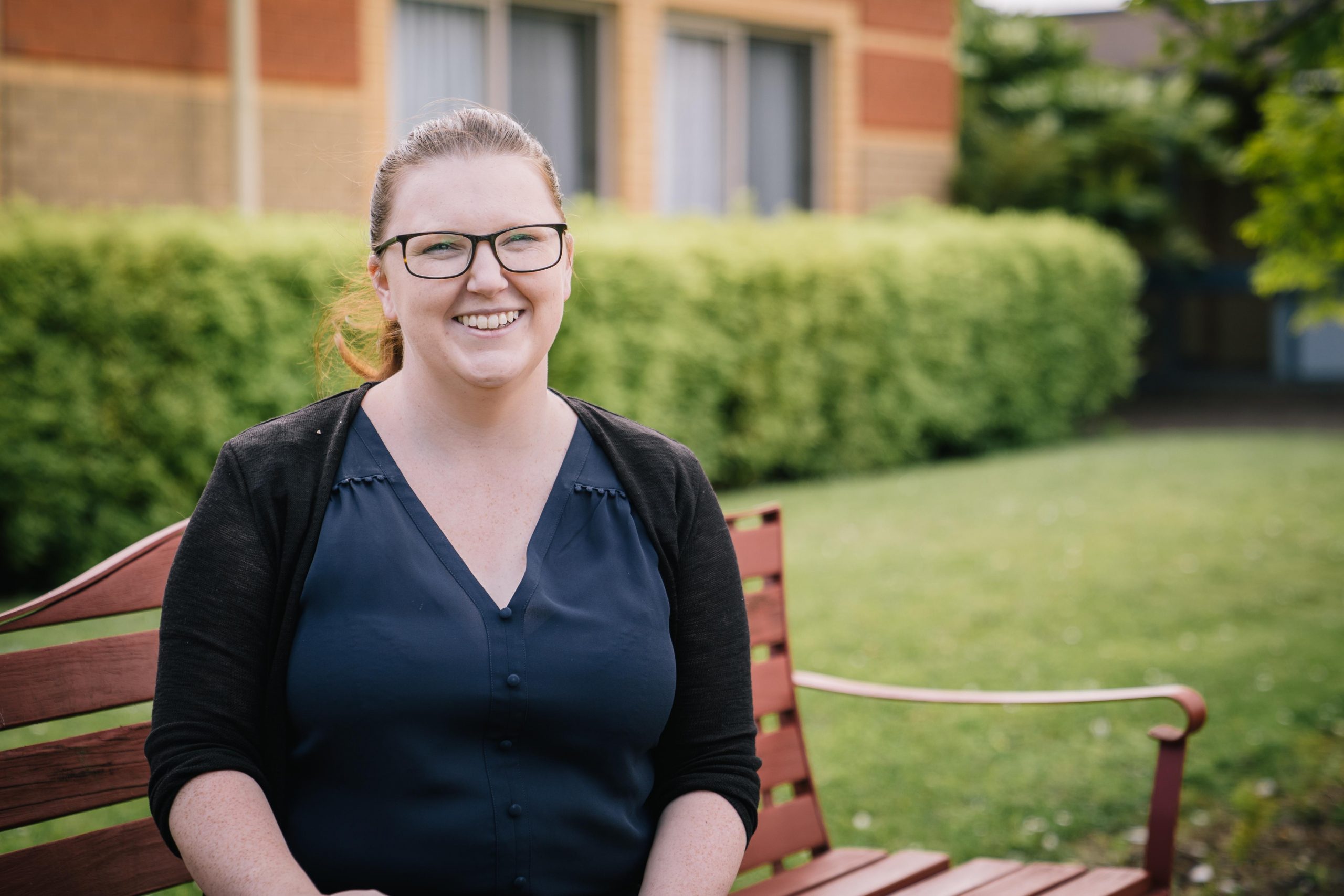Dr Yee Ching ‘Olivia’ Ong
Post Graduated Year 1
Post Graduate Year 1, more commonly referred to as your internship, is the transition from student to practitioner and can be where you first experience rural medicine. There are options for full 12-month rural internships as well as rotating to a regional health network for a term as part of a metropolitan based internship. Both metropolitan and rural based internships are administered by SAMET:
Whatever your training location your internship will consist of 47 weeks of carefully supervised clinical training designed to expose you to a broad range of clinical experiences. Previously interns would have to complete prescribed terms in general medicine, emergency medicine, surgery as well as several electives. In 2024 the Australian Medical Council introduced a new 2-year Prevocational Framework and, rather than prescribing specific terms, an internship now needs to address 4 clinical care categories:
- Undifferentiated Illness Care
- Chronic Illness Care
- Acute and Critical Illness Care
- Peri-operative and Procedural Care
Whyalla clinical skills day 2022
Undifferentiated Illness Care
Prevocational doctors must gain experience with patients having undifferentiated illnesses by admitting, assessing, presenting, and handing over cases. They are involved at the first presentation and when new issues arise, in settings like emergency departments or general practices.
LearnEM Emergency Bedside Ultrasound
Chronic Illness Care
Prevocational doctors need experience in managing chronic diseases and multi-morbidity, focusing on longitudinal care. Learning includes understanding the illness context, working with multidisciplinary teams, and planning complex discharges. This occurs in settings like medical wards, general practices and outpatient clinics.
Dr Zhong Ren Ong
Acute and Critical Illness Care
Prevocational doctors need experience managing acute illnesses, including caring for deteriorating patients. Learning involves recognising, assessing, escalating appropriately, and providing immediate management. This experience is gained in settings like acute medical, surgical, or emergency departments.
Left to right: Dr William Wong, Dr Zhong Ren Ong, Peter Burns
Peri-operative and Procedural Care
Prevocational doctors must gain experience in all care phases—pre-, peri-, and post-operative—for common surgical conditions. Learning activities include preadmission, intraoperative care, peri-operative management, post-operative care, and outpatient follow-up. This experience is obtained in settings like interventional cardiology, radiology, anaesthetic units, or surgical units.
Dr Jessica Farrar
Post Graduate Year 2
Following successful completion of the intern year you will be granted General Registration from AHPRA and can move on to your PGY2 year. Some specialty colleges, including both General Practice colleges, accept entry in PGY2 for which you will have to apply during your intern year. If you start a specialist training program in PGY2 that’s great! If not, then that’s great too. Thanks to the new AMC framework your health network is now required to continue to train, supervise and assess you throughout PGY2. As with the internship, PGY2 training positions are available across both regional and metropolitan South Australia and can form part of your Rural Generalist training pathway.
PGY2 positions are also administered by SAMET
How to apply
All positions (rural and metro) are advertised through the SA Health Careers Website. For more information about the applications process for SA Health see links below.
PGY 1 Annual Application Timeline
| Applications open | 6 May |
| Applications close | 5 June |
| Rural and Metro Provisional Offers commence | 14 & 16 July |
| National Late Vacancy Management (LVM) commences | 10 November |
PGY 2 Annual Application Timeline
| PGY2+ EOIs Open | 11 June |
| PGY2+ EOIs Close | 2 July |
| Interviews and reorder preferences | August |
| Offers Commence | 18 September |
| Late vacancy management (LVM) process commences | 23 October |
Useful Links
Sign up to the RGPSA
Sign up with us if you are interested in or need advice on rural training pathways or are already training in rural and would like to access a range of supports. We are here to support your training journey.





